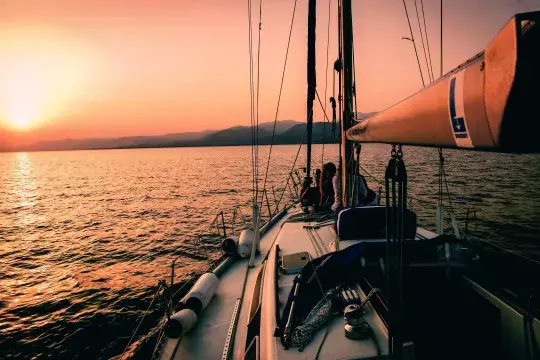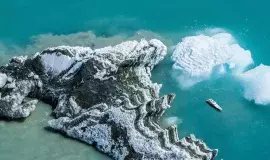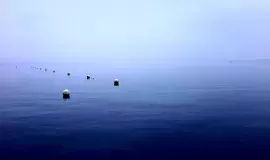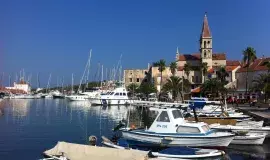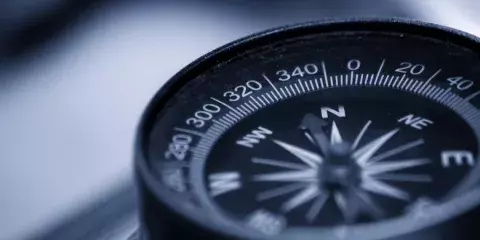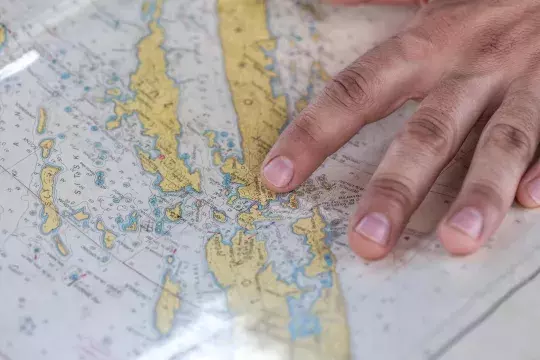
How to become a captain? Ease, take a captain classes!
Lets imagine your ideal vacation. Is it without tourists, somewhere at sea, only in the small circle of your family or closest friends? If the answer is yes and boat is the right place for you, you need to take into the consideration fewt things before heading out of the safety of a marina. First of all, you need a captain. If you don't have one and you don't want to hire somebody else, you need to get your own Captain's License by taking the captain classes. If you are interested in different types of them, how long does it take and what do you need to learn, then read along.
In order to become a captain, you need to get an International Captain's License: Master of Maritime Vessel. And here comes the dilemma. You can either chose the easy way and get a Croatian Captain's License, for which you „only“ need to pass an oral exam on a Croatian Master Office, or you go for the “difficult” one and get an International License, which you can obtain by attending the captain classes in an accredited training center somewhere in Europe.
Captain Classes? What is it?
Logically, they are the classes you take in order to obtain a Captain's License :). The captain classes are divided into theoretical and practical part and the whole captain course ends with the state exam. The course alone takes 4 to 5 dates and the exam is usually taken 2 weeks after its end. During the theoretical part, you will study the basics of navigation and seamanship, as well as get some knowledge of maritime laws and regulations. You will also learn how to prevent the collisions at sea according to COLREG, refresh your English and find out what captain needs to know about the meteorology and why. First aid is also a must and it will be included in health science classes.
The practical part consists of maritime experience on a recreational vessel powered by motor and sails with the aim to sail at least 200 nautical miles.
The confirmation of sailed miles will be provided by an experienced captain, who will supervise you during the whole sail. In general, the practical part will guide you through the basic skills and knowledge of how to control and maneuver the vessel.
Besides the captain classes, you need to obtain one additional thing, which is VHF radio operator's license. For example in Slovakia you can get one at Slovak Telecommunication Office in Bratislava.
Captain's License Categories
There are tree different categories of Captain's License. However, do not forget that you also need to have VHF radio operator's license along all three of them.
Category C is authorized to operate a recreational vessel with maximal length of 24 meters up to 12 nautical miles from the coast, which is approximately 22 kilometers.
Category B is authorized to operate a recreational vessel with maximal length of 24 meters up to 200 nautical miles from the coast, which is approximately 370 kilometers.
Category A is authorized to operate a recreational vessel with maximal length of 24 meters without any limitations of distance from the coast.
What are our experience with Captain Classes?
We obtained a Captain's Lincense:
Master of Maritime Recreational Vessel in 2009 in Skipper Academy in Slovak town Prešov. We were the first „graduates“ of such a course provided by this training center. And how did it go? Well, lets start with the practical part. We have spent an amazing week on a sail in Croatia, where the captain have taught us all in details about the boat, its parts and its particular functions. Starting with ropes, sails, maneuvers, to basics rules you need to know as a captain. We have learned to sail in and out of a marina, to reach a buoy, to moor a boat, to anchor in an adequate place. We have directly used our knowledge of meteorology. Moreover, we have also experienced a unique feeling of being navigated solely by lighthouses and reading of an ordinary map. All of this is just a small sample of things and information you can come across during the practical part of captain classes. You simply need to experience the rest of it yourself.
As stated above, the theoretical part focused on basic knowledge of navigation, seamanship, maritime law, COLREG, meteorology, health science and English language. All of these subjects are equally important to pass the exam and they also helps you to have a safe sailtrip as a fresh captain.
So what? Are you going to be the next captain? Will you take your friends and family on an unforgettable vacation at sea? From our own experience, we can guarantee you that you wont regret such a decision and you will never ever go on „normal“ vacation. Forget the crowded beaches and get your own adventure with the wind in the hair.
Marinatips Team
